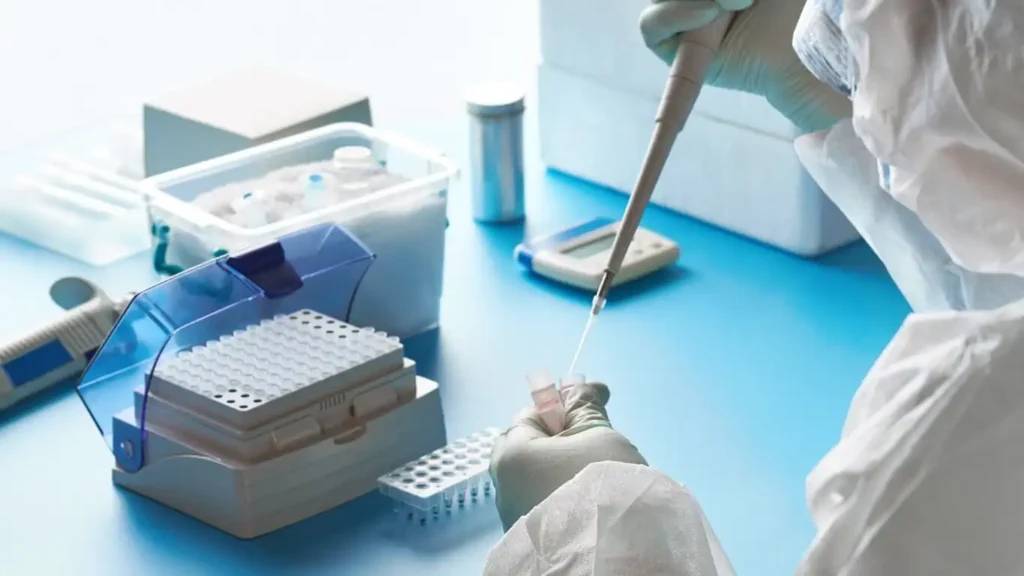Hebei Messi Biology Co., Ltd. states that for medical products such as pharmaceuticals (especially injectables), medical devices, and biological preparations, endotoxin content is a critical life-or-death indicator that must be strictly controlled. So, how can even minute traces of endotoxins in these products be precisely detected? This relies on an ingenious biological reaction, in which a common inorganic salt—magnesium sulfate (MgSO₄)—plays a crucial “activator” role.

The Miraculous “Horseshoe Crab Reagent” and Coagulation Reaction
Currently, the most sensitive and widely used endotoxin detection method globally recognized is the “Horseshoe Crab Assay,” also known as the Limulus Amebocyte Lysate (LAL) assay. The blood of horseshoe crabs contains special amoebocytes. When these cells encounter even minute amounts of endotoxin, they trigger a series of complex enzymatic reactions, ultimately leading to blood coagulation and gel formation. Scientists have developed the Limulus Amebocyte Lysate (LAL) reagent based on this phenomenon. In the laboratory, we mix the sample to be tested with the LAL reagent. If the sample contains endotoxin, the reagent will coagulate; otherwise, it remains liquid.
Magnesium Sulfate: The Indispensable “Catalyst”
However, this precise biochemical reaction does not work in isolation; it requires a suitable “working environment.” This is where magnesium sulfate comes in. When preparing the reaction system for the LAL assay, a specific concentration of magnesium sulfate solution must be added.
Its core function is that magnesium ions (Mg²⁺) are indispensable cofactors in the activation process of the Limulus blood clotting enzyme cascade. It can:
- Stabilize enzyme structure: Helps various enzymes within the coagulation system maintain their correct three-dimensional spatial structure, ensuring their biological activity.
- Promote reaction efficiency: As part of the catalytic center, it significantly accelerates the rate of enzymatic reactions, allowing detection sensitivity to reach the femtogram (fg) level.
- Optimize reaction environment: At a certain concentration, magnesium ions provide the ideal ionic environment for the entire coagulation cascade reaction, ensuring the stability and reproducibility of the results.
Without sufficient and pure magnesium ions, the entire reaction would become sluggish, unstable, or even completely fail to proceed, leading to false-negative results (i.e., endotoxin is present but not detected), which would pose significant drug safety risks.
Demanding Quality: Why Professional-Grade Magnesium Sulfate is So Important?
Since magnesium sulfate is so critical, its quality directly determines the accuracy of the detection results. Magnesium sulfate used for LAL assays cannot be replaced by ordinary industrial-grade products; it must meet extremely stringent standards:
- Ultra-high purity: Ensures extremely high purity to prevent any heavy metal ions (such as calcium, zinc, copper, etc.) or other impurities from interfering with or even inhibiting enzyme reactions.
- Endotoxin-free: This might seem like a paradox, but it is a fundamental requirement. Magnesium sulfate used for endotoxin detection must itself be “pyrogen-free” and contain no endotoxins, otherwise, it will contaminate the sample and lead to false-positive results.
- Excellent solubility and stability: It needs to dissolve quickly into a clear, transparent solution, and be stable in nature, not easily absorbing moisture or caking, ensuring concentration accuracy.
Hebei Messi Biology Co., Ltd.: Providing Reliable Assurance for Safe Detection
In China, Hebei Messi Biology Co., Ltd. is a specialized supplier deeply rooted in this niche field. Its high-purity, low-endotoxin grade magnesium sulfate products perfectly meet the stringent requirements of the LAL assay:
- Exceptional purity: Refined using advanced processes, the product boasts extremely high purity, effectively preventing interference from impurity ions in the enzyme reaction system, ensuring high sensitivity and accuracy of detection.
- Strict pyrogen-free control: Strict “pyrogen-free” standard management is implemented throughout the entire production, packaging, and transportation process, ensuring the product itself contains no endotoxins, thereby eliminating the risk of false positives at the source.
- Excellent batch-to-batch consistency: Every batch of product exhibits highly consistent quality, ensuring the stability and reproducibility of LAL assay results, providing a reliable data foundation for pharmaceutical quality control laboratories.
- Professional customized solutions: Can provide customized products of different specifications and concentrations according to clients’ specific experimental procedures and needs, offering more professional and flexible services.
Thus, it is clear that from a safe injectable drug to a sterile implantable medical device, sensitive and accurate LAL assay detection is indispensable. And magnesium sulfate, this seemingly ordinary chemical reagent, is precisely the “invisible guardian” ensuring the reliable operation of this detection process. It is thanks to quality-conscious suppliers like Hebei Messi Biology Co., Ltd. that our personal drug safety gains an additional layer of solid and reliable assurance.
